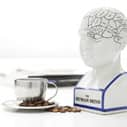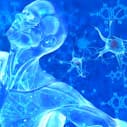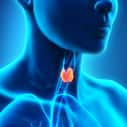
What's Hot
What's Hot
News flashes are posted here frequently to keep you up-to-date with the latest advances in health and longevity. We have an unparalleled track record of breaking stories about life extension advances.
Garlic extends lifespan in roundworm study
 July 31 2015. The August 2015 issue of the Journal of Nutritional Biochemistry published the finding of researchers at Kaohsiung Medical University in Taiwan of a lifespan-extending effect for an aqueous extract of garlic when given to Caenorhabditis elegans, a roundworm commonly used in gerontological experiments. "Advantages and beneficial effects of garlic (A. sativum) consumption have been widely investigated, eliciting great interests especially for medical researchers," note Chun-Hao Huang and colleagues in their introduction. "Although some previous studies have shown that garlic extract or some of its components may have potential anti-aging effects, systematic approaches to show the lifespan-promoting effect of garlic extract at the molecular and biosignaling levels are still lacking."
July 31 2015. The August 2015 issue of the Journal of Nutritional Biochemistry published the finding of researchers at Kaohsiung Medical University in Taiwan of a lifespan-extending effect for an aqueous extract of garlic when given to Caenorhabditis elegans, a roundworm commonly used in gerontological experiments. "Advantages and beneficial effects of garlic (A. sativum) consumption have been widely investigated, eliciting great interests especially for medical researchers," note Chun-Hao Huang and colleagues in their introduction. "Although some previous studies have shown that garlic extract or some of its components may have potential anti-aging effects, systematic approaches to show the lifespan-promoting effect of garlic extract at the molecular and biosignaling levels are still lacking."
When C. elegans was supplemented with garlic extract, lifespan increased by 21% in comparison with worms treated with water. The effect was found to be dependent upon the expression of a transcription factor known as daf-16, which was determined to be activated by the garlic compounds mannose-binding lectin and the amino acid N-acetylcysteine (NAC).
In a previous experiment, the team discovered a lifespan-enhancing effect for acetic acid (vinegar) in C. elegans. Dr Huang and colleagues found that acetic acid combined with aqueous garlic extract activated daf-16 to a greater extent than either agent alone, which suggests the possibility of upregulation of this pathway by a combination of compounds.
"Our results establish aqueous garlic extract as a promising lifespan-promoting herbal remedy and highlight the utility of integrated metabolo-proteomics for revealing biologically active components in commonly consumed foods and natural products," they conclude.
—D Dye
Maintaining moderate coffee habit linked with reduced risk of cognitive impairment
 July 29 2015. The Journal of Alzheimer's Disease published an article ahead of print on July 28 that helps to further define the neuroprotective effect of coffee consumption in an older population.
July 29 2015. The Journal of Alzheimer's Disease published an article ahead of print on July 28 that helps to further define the neuroprotective effect of coffee consumption in an older population.
The current study included data from 1,445 men and women enrolled in the Italian Longitudinal Study on Aging. Over a 3.5 year median follow-up period, subjects who consumed 1 to 2 cups coffee per day had a 53% lower incidence of mild cognitive impairment--a precursor to dementia--compared to those who rarely or never consumed the beverage. Among those who increased their coffee intake, the risk of cognitive impairment was greater than the risk experienced by subjects who maintained or reduced their intake. In this study, higher intake of coffee of more than two cups per day did not confer a level of protection greater than no intake.
As a possible mechanism, the authors suggest that caffeine may antagonize excessive activation of adenosine A2A receptors, which could reduce damage caused by amyloid beta. In addition, caffeine improves insulin sensitivity, thereby lessening the risk of diabetes, which is a risk factor for cognitive decline. They note that moderate doses of caffeine have been shown to boost memory in rodents, while higher doses impaired memory acquisition.
"These findings from the Italian Longitudinal Study on Aging suggested that cognitively normal older individuals who never or rarely consumed coffee and those who increased their coffee consumption habits had a higher risk of developing MCI," commented lead author Vincenzo Solfrizzi, MD, PhD, of the University of Bari Aldo Moro. "Therefore, moderate and regular coffee consumption may have neuroprotective effects also against MCI confirming previous studies on the long-term protective effects of coffee, tea, or caffeine consumption and plasma levels of caffeine against cognitive decline and dementia."
—D Dye
Testosterone replacement not linked to blood clots
 July 27 2015. The August 2015 issue of Mayo Clinic Proceedings published the outcome of a study conducted by researchers at The University of Texas Medical Branch at Galveston which failed to uncover an increased risk of venous thromboembolism (VTE, or blood clots in the veins) among men using testosterone replacement therapy. The finding counters the conclusions of other researchers of an association between testosterone and increased cardiovascular disease risk.
July 27 2015. The August 2015 issue of Mayo Clinic Proceedings published the outcome of a study conducted by researchers at The University of Texas Medical Branch at Galveston which failed to uncover an increased risk of venous thromboembolism (VTE, or blood clots in the veins) among men using testosterone replacement therapy. The finding counters the conclusions of other researchers of an association between testosterone and increased cardiovascular disease risk.
“In 2014, the Federal Drug Administration required manufacturers to add a warning about potential risks of VTE to the label of all approved testosterone products,” stated lead author Jacques Baillargeon, of the Mayo Clinic's department of preventive medicine and community health. “The warning, however, is based primarily on post-marketing drug surveillance and case reports. To date, there have been no published comparative, large-scale studies examining the association of testosterone therapy and the risk of VTE.”
The study included 30,572 men aged 40 years and up enrolled in a commercial insurance program between 2007 and 2012. Venous thromboembolism was defined as deep vein thrombosis or pulmonary embolism diagnosis with prescription of an anticoagulant drug or placement of an intravascular vena cava filter within 60 days. Subjects treated for thromboembolism were matched with three controls for age and other factors.
Men who had been exposed to testosterone therapy within fifteen days prior to the VTE event did not experience an increased risk compared to the controls. Examination of the route of testosterone administration or extension of the period of exposure to up to 60 days prior to the event also failed to reveal any link.
“It is important to acknowledge, for a man who has medically-diagnosed low testosterone, that there are clear risks to not receiving testosterone therapy, including osteoporosis, sexual dysfunction, increased amounts of fat tissue, decreased lean muscle mass, possible metabolic syndrome and cardiovascular disease,” Dr Baillargeon cautioned. “It’s also important to note that further research needs to be conducted to rigorously assess the long-term risks of testosterone therapy."
—D Dye
Aging switch located
 July 24 2015. Reducing many of the effects of aging might be something as simple as the flip of a switch, according to a report published on July 23 in Molecular Cell.
July 24 2015. Reducing many of the effects of aging might be something as simple as the flip of a switch, according to a report published on July 23 in Molecular Cell.
Research conducted at Northwestern University found that the heat shock response, which is essential for proper protein formation and cellular health, declined steeply over a period of hours that coincided with the onset of reproductive maturity in C. Elegans (a roundworm used in aging experiments) due to the activation of a genetic switch. The switch is conserved in humans and other animals, making it a target for aging research.
"C. elegans has told us that aging is not a continuum of various events, which a lot of people thought it was," senior author Richard I. Morimoto remarked. "In a system where we can actually do the experiments, we discover a switch that is very precise for aging. All these stress pathways that insure robustness of tissue function are essential for life, so it was unexpected that a genetic switch is literally thrown eight hours into adulthood, leading to the simultaneous repression of the heat shock response and other cell stress responses."
By blocking germline cells from sending the signal, Dr Morimoto and co-researcher Jonathan Labbadia found that the tissues of adult animals remained stress resistant. "We had, in a sense, a super stress-resistant animal that is robust against all kinds of cellular stress and protein damage," Dr Morimoto reported.
"Wouldn't it be better for society if people could be healthy and productive for a longer period during their lifetime?" he asked. "I am very interested in keeping the quality control systems optimal as long as we can, and now we have a target. Our findings suggest there should be a way to turn this genetic switch back on and protect our aging cells by increasing their ability to resist stress."
—D Dye
Resveratrol, quercetin could improve safety of cancer drug
 July 17 2015. Findings described in the September 10, 2015 issue of the Journal of Controlled Release suggest that the polyphenols resveratrol and quercetin could help improve the safety of Adriamycin (doxorubicin), an effective but potentially cardiotoxic chemotherapy. Adriamycin's mechanism of cardiotoxity involves reactive oxygen and nitrogen species generation, a phenomenon that is reduced by free radical scavengers such as these plant-derived compounds.
July 17 2015. Findings described in the September 10, 2015 issue of the Journal of Controlled Release suggest that the polyphenols resveratrol and quercetin could help improve the safety of Adriamycin (doxorubicin), an effective but potentially cardiotoxic chemotherapy. Adriamycin's mechanism of cardiotoxity involves reactive oxygen and nitrogen species generation, a phenomenon that is reduced by free radical scavengers such as these plant-derived compounds.
Using a system involving polymeric micelles that allows resveratrol and quercetin to be administered intravenously, Adam Alani of Oregon State University's College of Pharmacy and his associates first tested the compounds in human ovarian cancer cells and rat heart muscle cells. While Adriamycin was antagonistic toward heart cells, resveratrol and quercetin decreased the activity of caspases involved in apoptosis (programmed cell death) in these cells while not interfering with Adriamycin's caspase activity in cancerous cells. Reactive oxygen species generated in both cell lines were reduced by resveratrol and quercetin only in the heart muscle cells. When the combo was tested in mice, resveratrol and quercetin were shown to confer full cardioprotection.
"This has great potential to improve chemotherapeutic cancer treatment," stated Dr Alan. "The co-administration of high levels of resveratrol and quercetin, in both in vitro and in vivo studies, shows that it significantly reduces the cardiac toxicity of Adriamycin. And these compounds have a synergistic effect that enhances the efficacy of the cancer drug, by sensitizing the cancer cells to the effects of the drug."
"There are several advantages with this system," Dr Alani noted. "We can finally reach clinical levels of these polyphenols in the body. We can load both the compounds at one time to help control the cardiotoxicity of the cancer drug, and we can help the polyphenols accumulate in cancer cells where they have their own anti-cancer properties."
—D Dye
Low methionine diet improves targeted breast cancer treatment
 July 15 2015. The June 2015 issue of Clinical Cancer Research reported the discovery of researchers at the University of Wisconsin of greater vulnerability of triple-negative breast cancer cells to targeted antibody treatment when deprived of the amino acid methionine.
July 15 2015. The June 2015 issue of Clinical Cancer Research reported the discovery of researchers at the University of Wisconsin of greater vulnerability of triple-negative breast cancer cells to targeted antibody treatment when deprived of the amino acid methionine.
Vincent Cryns and his colleagues cultured breast cancer cells lacking receptors to estrogen, progesterone and human epidermal growth factor receptor 2 (HER-2) in media containing or lacking methionine. They found that the methionine-deprived cancer cells increased a cell surface receptor known as TRAIL-R2 which improved the cells' sensitivity to an antibody that binds to the receptor, resulting in more cell death.
"We've shown that removing methionine can have a specific effect on a molecular pathway that regulates cell death to increase the vulnerability of cancer cells to treatments that target this pathway," Dr Cryns explained. "What's particularly exciting about our findings is that they suggest that a dietary intervention can increase the effectiveness of a targeted cancer therapy."
"What we didn't anticipate is that the normal, noncancer cells didn't upregulate the receptor under methionine stress the way the tumor cells did," he added. "This shows that diet can help expose a targetable defect in cancer cells."
Methionine is an essential amino acid that cannot be synthesized in the body and must be obtained by dietary means. Animal-derived foods contain high amounts and vegan diets contain less. A brief period in which patients consumed a methionine-depleted diet could be combined with a TRAIL-2 antibody to boost the effectiveness of the antibody therapy, which had not been successful when used alone by patients with metastatic solid tumors.
"We still have much to learn, but we believe that uncovering the molecular effects of specific nutritional interventions like a low methionine diet will open up new treatment options for cancer," Dr Cryns predicted.
—D Dye
Higher vitamin C intake linked with lower risk of head and neck cancer
 July 13 2015. An article published on July 8, 2015 in the American Journal of Clinical Nutrition documentsan association between higher intake of vitamin C and a reduction in the risk of cancer of the head and neck, the seventh most common type of malignancy.
July 13 2015. An article published on July 8, 2015 in the American Journal of Clinical Nutrition documentsan association between higher intake of vitamin C and a reduction in the risk of cancer of the head and neck, the seventh most common type of malignancy.
Researchers at Maastricht University utilized data from participants in The Netherlands Cohort Study for the current investigation. The study included 3,898 subcohort members plus 415 cases of head and neck cancer that included 131 oral cavity cancers (OCC), 88 oro-/hypopharyngeal (OHCP) cancers and 193 laryngeal cancers (LC) that developed over 20 years of follow-up. Responses to dietary questionnaires completed upon enrollment were analyzed for the intake of carotenoids, and vitamins C and E from food and supplements.
Compared to the head and neck cancer patients, the control group had a higher median daily intake of the majority of vitamins and carotenoids. While no clear associations were uncovered for the carotenoids and vitamin E, men and women whose vitamin C intake was among the top 25% of subjects had a 61% lower adjusted risk of head and neck cancer compared with those whose intake was among the lowest 25%. The association appeared to be stronger for oral cavity cancers than the other head and neck cancers.
As possible mechanisms, authors Leonie de Munter and colleagues note that vitamin C blocks the metabolic activation of carcinogens, prevents oxidative stress and stimulates immune function. "To our knowledge, this is the largest prospective study to investigate the association of vitamin and carotenoid intake and risk of head and neck cancers, including the most-common subtypes OCC, OHCP, and LC," they announce. "Future research is recommended to confirm our results and further investigate the underlying mechanisms, which may be promising for the prevention of head and neck cancer."
"We know that fruit and vegetables are healthy, but now our research is pinpointing more precisely why this is so, noted coauthor Boerge Nordestgaard, who is a clinical professor at the Faculty of Health and Medical Sciences at the University of Copenhagen, and a consultant at Herlev and Gentofte Hospital. "Eating a lot of fruit and vegetables is a natural way of increasing vitamin C blood levels, which in the long term may contribute to reducing the risk of cardiovascular disease and early death."
—D Dye
Increased vitamin C linked to reduced risk of early mortality
 July 10 2015. The June 2015 issue of the American Journal of Clinical Nutrition published findings from researchers at the University of Copenhagen of a lower risk of cardiovascular disease and premature death in association with increases in plasma vitamin C and fruit and vegetable intake.
July 10 2015. The June 2015 issue of the American Journal of Clinical Nutrition published findings from researchers at the University of Copenhagen of a lower risk of cardiovascular disease and premature death in association with increases in plasma vitamin C and fruit and vegetable intake.
The investigators analyzed data from 87,030 men and women enrolled in the Copenhagen General Population Study and 10,173 participants in the Copenhagen City Heart Study. Plasma vitamin C levels were measured in 3,512 newly recruited subjects and dietary intake data was available for 83,256 subjects.
Ischemic heart disease was documented in 10,123 individuals and there were 8,477 deaths over the studies' follow-up periods. "We can see that those with the highest intake of fruit and vegetables have a 15% lower risk of developing cardiovascular disease and a 20% lower risk of early death compared with those who very rarely eat fruit and vegetables," reported lead author Camilla Kobylecki, who is a medical doctor and PhD student at the Department of Clinical Biochemistry, Herlev and Gentofte Hospital. "At the same time, we can see that the reduced risk is related to high vitamin C concentrations in the blood from the fruit and vegetables."
"We know that fruit and vegetables are healthy, but now our research is pinpointing more precisely why this is so, noted coauthor Boerge Nordestgaard, who is a clinical professor at the Faculty of Health and Medical Sciences at the University of Copenhagen, and a consultant at Herlev and Gentofte Hospital. "Eating a lot of fruit and vegetables is a natural way of increasing vitamin C blood levels, which in the long term may contribute to reducing the risk of cardiovascular disease and early death."
—D Dye
Minimum vitamin D dose inadequate for overweight African Americans
 July 8 2015. On July 4, 2015, the journal BioMed Central Obesity published the results of a trial of overweight and obese African Americans that revealed a failure of the Institute of Medicine's recommended minimum daily dose of vitamin D to elevate serum levels to a healthy range after 16 weeks of treatment.
July 8 2015. On July 4, 2015, the journal BioMed Central Obesity published the results of a trial of overweight and obese African Americans that revealed a failure of the Institute of Medicine's recommended minimum daily dose of vitamin D to elevate serum levels to a healthy range after 16 weeks of treatment.
"Our randomized controlled trial, for the first time, comprehensively evaluated time- and dose-responses of vitamin D supplementation in overweight/obese African Americans with suboptimal vitamin D status," authors Jigar Bhagatwala and colleagues announce.
The trial included 70 overweight or obese African American between the ages of 13 to 45 years with 25 hydroxyvitamin D levels of 20 nanograms per milliliter (ng/mL) or lower. Participants were randomized to groups that received a placebo or a monthly dose equivalent to 600 international units (IU), 2,000 IU or 4,000 IU vitamin D per day for 16 weeks.
While the two higher doses were successful at restoring serum vitamin D levels to 30 ng/mL or more at 16 weeks, those who were given the lowest dose failed to achieve this level. In contrast, participants in the 4,000 IU equivalent group reached a serum level of 30 ng/mL as early as 8 weeks. Intact parathyroid hormone levels, which become elevated with vitamin D deficiency, were reduced only by the 4,000 IU dose in comparison with the placebo at 8 and 16 weeks.
"We hope these studies will give physicians better guidelines for some of their patients," stated lead researcher Yanbin Dong of the Medical College of Georgia at Georgia Regents University. "As with many therapies in medicine today, evidence is emerging that a more personalized approach is likely the best approach when determining how much vitamin D is optimal for an individual. Dose definitely matters."
—D Dye
Depression significantly higher in men with borderline T
 July 6 2015. The August 2015 issue of the Journal of Sexual Medicine reports the findings of researchers at George Washington University of a greater risk of depression and depressive symptoms in men with borderline testosterone levels.
July 6 2015. The August 2015 issue of the Journal of Sexual Medicine reports the findings of researchers at George Washington University of a greater risk of depression and depressive symptoms in men with borderline testosterone levels.
"In an era where more and more men are being tested for 'low T'--or lower levels of testosterone--there is very little data about the men who have borderline low testosterone levels," stated lead researcher Michael S. Irwig, MD, who is an associate professor of medicine and director of the Center for Andrology at the George Washington School of Medicine and Health Sciences. "We felt it important to explore the mental health of this population."
Dr Irwig and his associates analyzed data from 200 men between 20 to 77 years of age who were referred for tertiary care for testosterone levels ranging from 200 to 350 nanograms per deciliter. Patient Health Questionnaire scores were used to determine the presence of depressive symptoms.
Depression and/or depressive symptoms were present in 56% of the men, which is significantly higher than the 6% to 23% range estimated to occur among the general population. One quarter of the men were using antidepressant drugs and a significant number of them were overweight or obese. Common symptoms included erectile dysfunction, decreased libido, low energy, and sleep disturbances.
"While sexual and nonspecific symptoms (i.e., fatigue) likely prompted measurements of testosterone in this selected population, clinicians should recognize the high rates of depression and depressive symptoms in men referred for borderline testosterone levels," the authors conclude. "Clinicians should consider screening for depression/depressive symptoms and overweight and unhealthy lifestyle risk factors in men referred for tertiary care for potential hypogonadism."
—D Dye
Antioxidants, omega-3 help clear amyloid in early Alzheimer's disease
 July 1 2015. The July 2015 issue of The FASEB Journal describes a study of patients with cognitive impairment or early Alzheimer's disease which found that supplementation with fish oil (a significant source of omega-3 fatty acids) and antioxidants improved the clearance of amyloid beta, a toxic protein that accumulates in the brains of Alzheimer's disease patients.
July 1 2015. The July 2015 issue of The FASEB Journal describes a study of patients with cognitive impairment or early Alzheimer's disease which found that supplementation with fish oil (a significant source of omega-3 fatty acids) and antioxidants improved the clearance of amyloid beta, a toxic protein that accumulates in the brains of Alzheimer's disease patients.
The study included 12 participants with minor cognitive impairment (MCI), 2 participants with pre-MCI, and 7 Alzheimer disease patients. Phagocytosis of amyloid beta 1-42, resolvin D1 production and cognitive status were evaluated before and after 4 to 17 months of supplementation.
While phagocytosis of amyloid beta by monocytes improved in those with MCI and pre-MCI, the increase observed in Alzheimer's disease patients was not significant. Resolvin D1, which has been shown to stimulate amyloid beta phagocytosis in vitro, was found to have in increased by 80% in MCI and pre-MCI patients.
"Our study is the first to show significant immune and biochemical effects of omega-3 fatty acids with antioxidants in patients with MCI," announce authors Milan Fiala, MD, and colleagues at the University of California, Los Angeles. "Cognitive benefits of omega-3 supplementation in patients with MCI should be tested in a clinical trial."
"We've known for a long time that omega-3 fatty acids and some antioxidants can be beneficial to people with a wide range of health problems, as well as protective for healthy people," commented The FASEB Journal's Editor-in-Chief Gerald Weissmann, MD. "Now, we know that the effects of these supplements may extend to Alzheimer's disease as well. Although these supplements are considered to be generally safe and are very easy to obtain, full-scale clinical trials are necessary to verify the findings of this research and to identify who might benefit the most."
—D Dye

